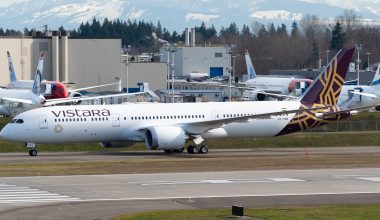The aviation industry, a dynamic and ever-evolving sector, demands leaders who are adept in technical skills and possess strong management acumen. As the industry expands, the need for professionals who can efficiently manage airport operations, airline services, and air traffic control systems grows simultaneously. This is where Aviation Management Programs come into play, offering specialized education and training for individuals aiming to soar in leadership roles within this field.

A Blend of Aviation and Management Studies
Aviation Management Programs uniquely merge the world of aviation with management principles. At their core, these programs offer a comprehensive curriculum that covers a wide range of subjects. Students delve into the intricacies of aviation science, exploring subjects like aerodynamics, airport operations, and flight principles. If they struggle with any subjects, the best essay writing services can help them learn better. Students can buy assignment writing examples and study aviation more thoroughly. This technical foundation is crucial as it provides a solid understanding of the industry’s operational aspects.
Also Read: Role of air traffic controllers in aviation
However, the true essence of these programs lies in their emphasis on management studies. Courses in leadership, organizational behavior, and strategic management are integral. They equip students with the skills needed to lead teams, make informed decisions, and navigate the complex business environment of the aviation sector. This blend of aviation-specific knowledge and managerial expertise ensures that graduates are familiar with aviation concepts and capable of leading the industry forward.
Hands-on Experience and Real-world Applications
Theory is vital, but in the fast-paced world of aviation education, practical experience is equally important. Aviation Management Programs often include hands-on training modules and real-world applications. Internships with airlines, airports, and other aviation-related companies are common, providing students with invaluable industry exposure. These experiences are not just about applying classroom knowledge but about understanding the nuances of working in the field, from managing airport operations to dealing with crises.
Moreover, many programs incorporate flight simulations and case studies in their curriculum. These practical exercises mimic real-life scenarios, allowing students to hone their problem-solving and decision-making skills. By the time they graduate, students are not just theoretically proficient but also practically equipped to handle the challenges of the aviation industry.
Developing Leadership and Interpersonal Skills
Leadership in aviation is not just about managing systems and processes; it’s equally about managing people. Aviation Management Programs place a significant emphasis on developing interpersonal and leadership skills. Communication, teamwork, and conflict resolution are key components of the curriculum. Students learn how to lead diverse teams, communicate effectively with stakeholders, and maintain high morale among staff, all critical skills for any successful leader in the aviation industry.
Additionally, these programs often include courses on ethics and professional responsibility. Being highly regulated and safety-critical, the aviation industry requires leaders who can uphold ethical standards and make responsible decisions. Aviation management programs prepare students to be effective and ethical leaders by instilling these values.
Staying Abreast with Technology and Innovation
The aviation industry is at the forefront of technological advancement. Thus, a crucial aspect of Aviation Management Programs is keeping students abreast of the latest trends and innovations. Courses often cover topics like aviation information systems, emerging technologies in aircraft design, and the impact of digital transformation on airline operations. This focus ensures graduates are familiar with current technologies and prepared for future advancements.
Moreover, these programs encourage innovative thinking. Students are often involved in projects requiring them to develop creative solutions for industry challenges. This fosters an environment of innovation, essential for the continual growth and development of the aviation sector.
Career Opportunities and Industry Demand
Graduates of Aviation Management Programs have many career opportunities within the aviation industry. From airport managers and airline executives to air traffic controllers and aviation consultants, the scope is vast. The industry’s growth trajectory suggests a sustained demand for skilled professionals who can take up leadership roles and drive the sector forward.
Furthermore, the skills acquired in these programs are also transferable to other sectors. Graduates have a unique blend of technical knowledge and managerial expertise, making them valuable assets in various fields.
Conclusion
Aviation Management Programs are more than just educational courses; they are gateways to exciting and fulfilling careers in the aviation industry. By providing a balanced mix of theoretical knowledge, practical experience, leadership training, and technological insights, these programs are shaping the future leaders of the aviation world. For those passionate about flying and a drive to lead, these programs offer the perfect launchpad to a successful career in the skies. The sky is not the limit; it’s just the beginning for graduates of Aviation Management Programs.






